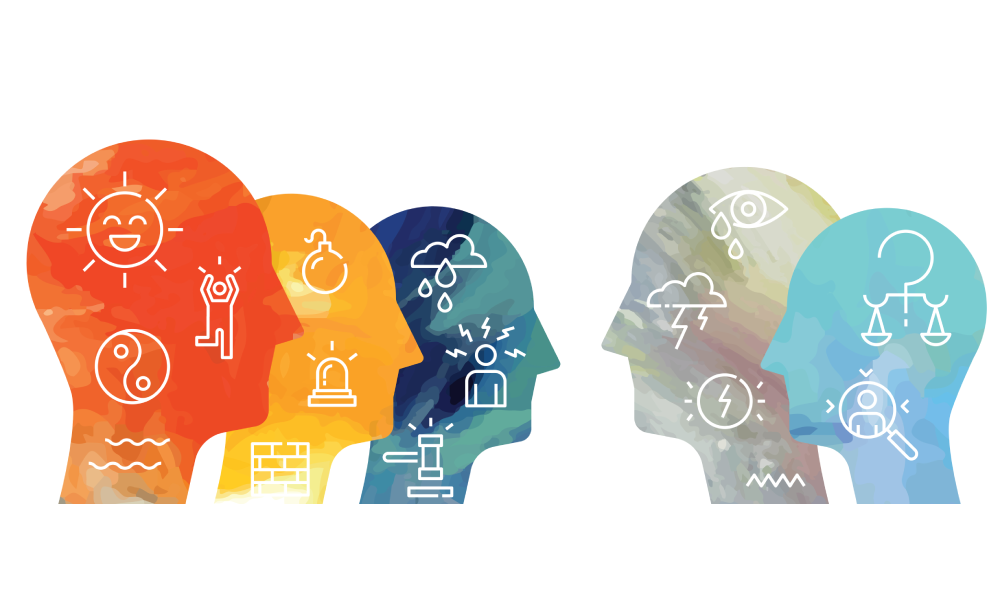‘By looking for EI skills in the people you hire, you pave the way for a more successful, productive and happy workforce’

Not too long ago, the concept of emotional intelligence (EI) was largely unknown to employers and HR. Over time, awareness of mental health as a factor in employee productivity and engagement has increased — and with it the role that EI can play in employee wellness.
To learn more about the role EI can play in employee wellness, Canadian HR Reporter spoke with Dr. Steven Stein, founder and executive chair of Multi-Health Systems (MHS) — a Toronto-based publisher of scientifically validated assessments — and author of the book Hardiness: Making Stress Work for You to Achieve Your Life Goals, along with Courtney Ounjian, marketing communications specialist for talent development at MHS.
Q: What is emotional intelligence?
Stein: “Emotional intelligence is the ability to be aware of your own and other people’s emotions, to manage your own and others’ emotions, and to use emotions to motivate, make good decisions, and perform well under stressful situations.”
Q: Why should employers be concerned with the mental wellness of their employees?
Ounjian: “We spend most of our waking hours in the workplace and psychological safety is a crucial aspect of employee wellness and corporate culture.”
SS: “Mental health challenges cost employers millions of dollars in productivity, absenteeism, and staff engagement. As well, as good corporate citizens, employers should care about the wellbeing of their people and their communities.”
Q: What are some of the workplace elements that negatively affect employee mental wellness?
Ounjian: “Mental health problems are the result of a complex interplay between biological, psychological, social, and environmental factors. There is increasing evidence that both the content and context of work can play a role in the development of mental health problems in the workplace.
“A 2005 report by the World Health Organization, Mental Health Policies and Programmes in the Workplace, listed several key factors contributing to poor employee mental health including: workload; lack of participation in the workplace; unpleasant tasks; role ambiguity or conflict, lack of recognition at work; inequity; poor interpersonal relationships; poor working conditions; poor leadership and communication; and conflicting home and work demands.”

Courtney Ounjian and Dr. Steven Stein
Stein: “Add to that the effects of a pandemic. Senior managers and leaders are really seeing the importance of these issues now. Now it’s everyone’s business to look after each other.”
Q: How can employers encourage and promote EI in their employees?
Stein: “Employers can be more open to the idea of EI and wellbeing. They could provide information about what it means to be healthy emotionally through reading materials, video links, and lunch-and-learns. They should encourage a work environment that is open and transparent and where people are free to express how they feel about both work and others.”
Ounjian: “[It’s about] the idea of using a different language for EI and emotions at work. Any workplace where that’s part of training and development, the discussions move to addressing emotion and people talking about being self-aware and more emotionally expressive. From my perspective, it’s a big help being able to talk about EI in the same language with everybody that you work with.”
Q: What are some examples of EI elements important for workforces?
Stein: “It can start with the selection process. By looking for EI skills in the people you hire, you pave the way for a more successful, productive, and happy workforce. You also pave the way for a workplace in which people are more likely to solve problems constructively.
“EI also plays a role in team building. As we move away from silos and we depend more on others to get work done — especially cross-functionally — it is even more important that we have the emotional skills to work together as a team. We have seen EI being included more as part of leadership training —in business schools and as an element of leadership training programs in major corporations.”
Q: How important is EI for HR professionals and how can they apply it to their roles?
Stein: “EI is seen as significantly more important now than when we were among the pioneers of this area some 25 years ago. It's important for HR professionals to be aware of EI, to understand it, and to learn how they can use it in the recruitment process as well as in the learning and development of employees at both the contributing and leadership levels.
“The ability to interact with employees and leaders objectively is really important for an HR role. Being emotionally intelligent in that role involves not only being that conduit but also being able to relate and create safer places for employees to discuss any issues. The HR person is a catalyst for change when it comes to EI.”




